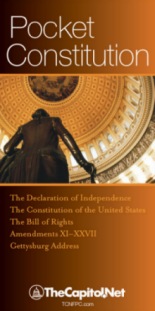Traditional and Roth Individual Retirement Accounts (IRAs): A Primer (CRS RL34397)
In response to concerns over the adequacy of retirement savings, Congress has created incentives to encourage individuals to save for retirement through a variety of retirement plans. Some retirement plans are employer-sponsored, such as 401(k) plans, and others are established by individual employees, such as Individual Retirement Accounts (IRAs). This report describes the primary features … Read more



